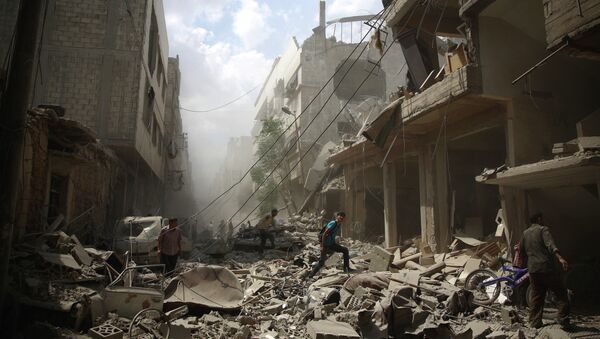If Russia and the EU restart their cooperation, it won't be because of the diplomatic work of EU leaders, but due to Washington and Moscow finally getting along and working together to defeat ISIL in the Middle East, Maestre-Sanchez said.
The Spanish writer said if and when the two superpowers agree on the Syrian issue, it will naturally spill into the re-establishment of Russia-EU economic relations.
"It's funny, but that's how international politics work," Maestre-Sanchez said, as cited by El Mundo, stating that the EU is currently paralyzed and has no voice of its own in high-level international politics.
Besides the refugee crisis and food embargo, Europe is currently facing an even more important problem — the lack of real leaders, people who could lead the continent through hard times and find working solutions to overcome problems.
On August 6, 2014, Russia imposed a year-long embargo on food imports from the European Union, the United States and some other Western countries, in response to sanctions imposed against it over the Ukraine crisis. At the time, Russia was the European Union's second-biggest market for food exports.
According to the Economic Development Ministry, between August 2014 and April 2015, food imports to Russia from countries subject to the countersanctions dropped by $2.5 billion.
Copa-Cogeca, an association of European farmers and agri-cooperatives, has estimated that, as of late July 2015, agricultural producers in EU countries have lost 5.5 billion euros as a result of the Russian food embargo.
In June, Russia extended for another year its ban on food imports from the EU, the United States, Canada and Norway.



